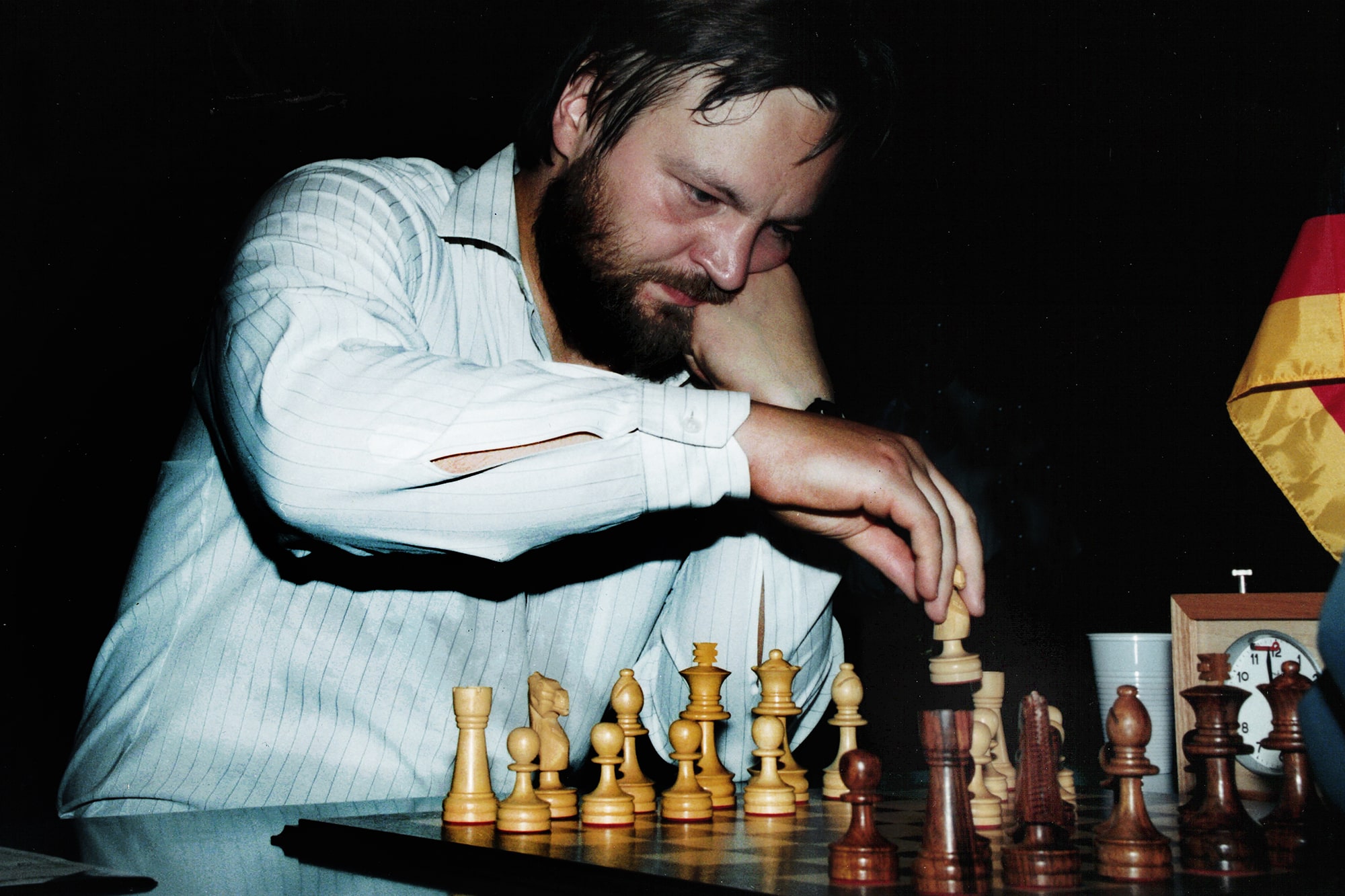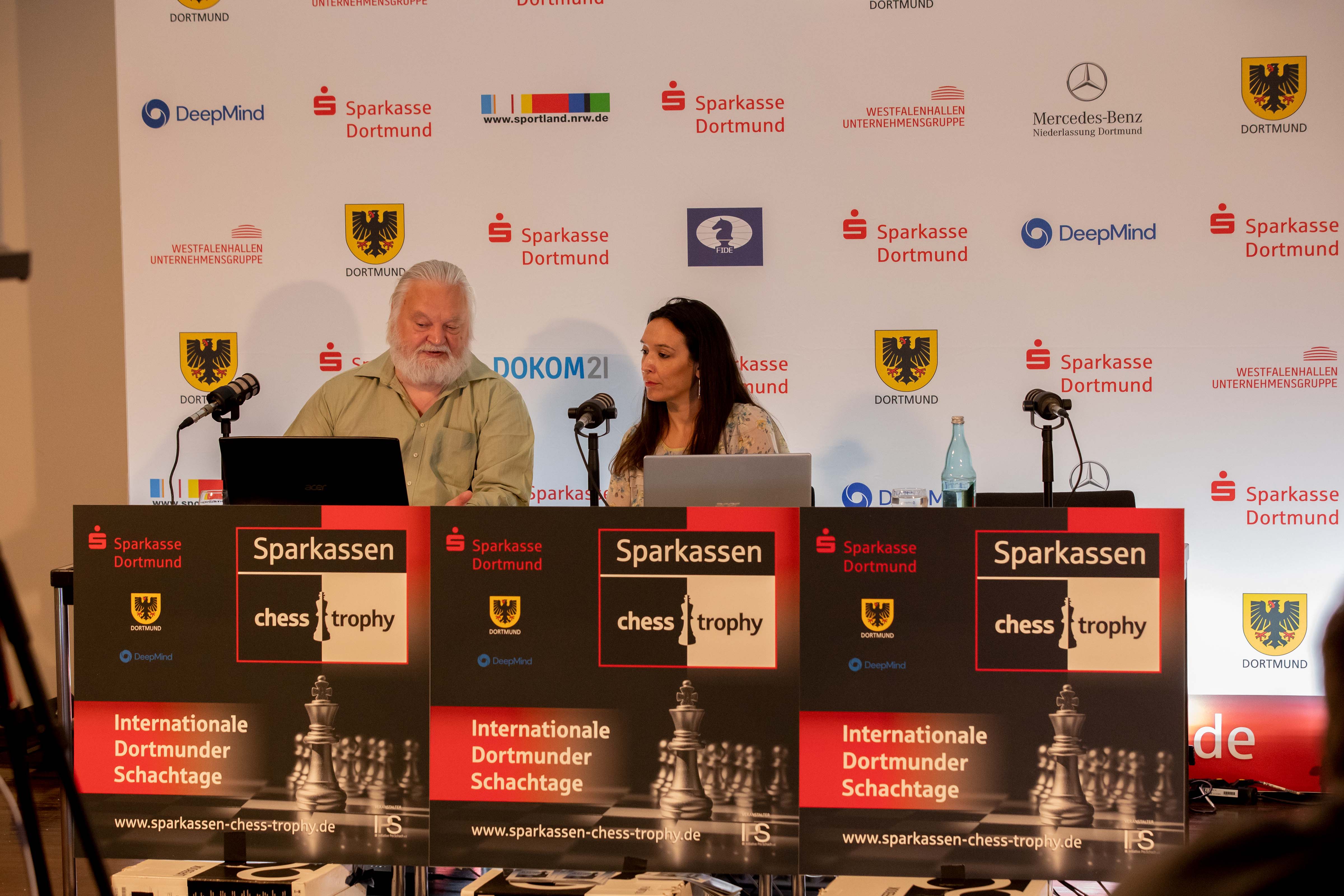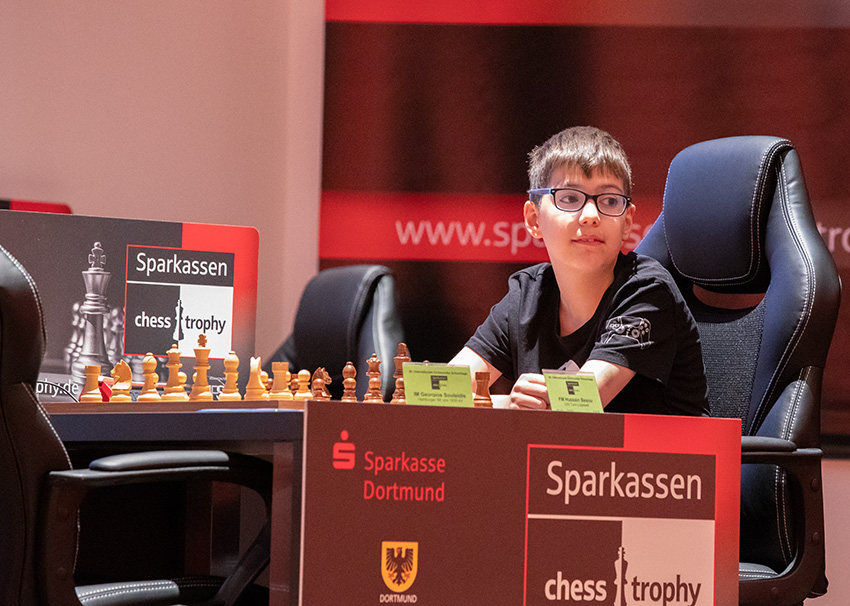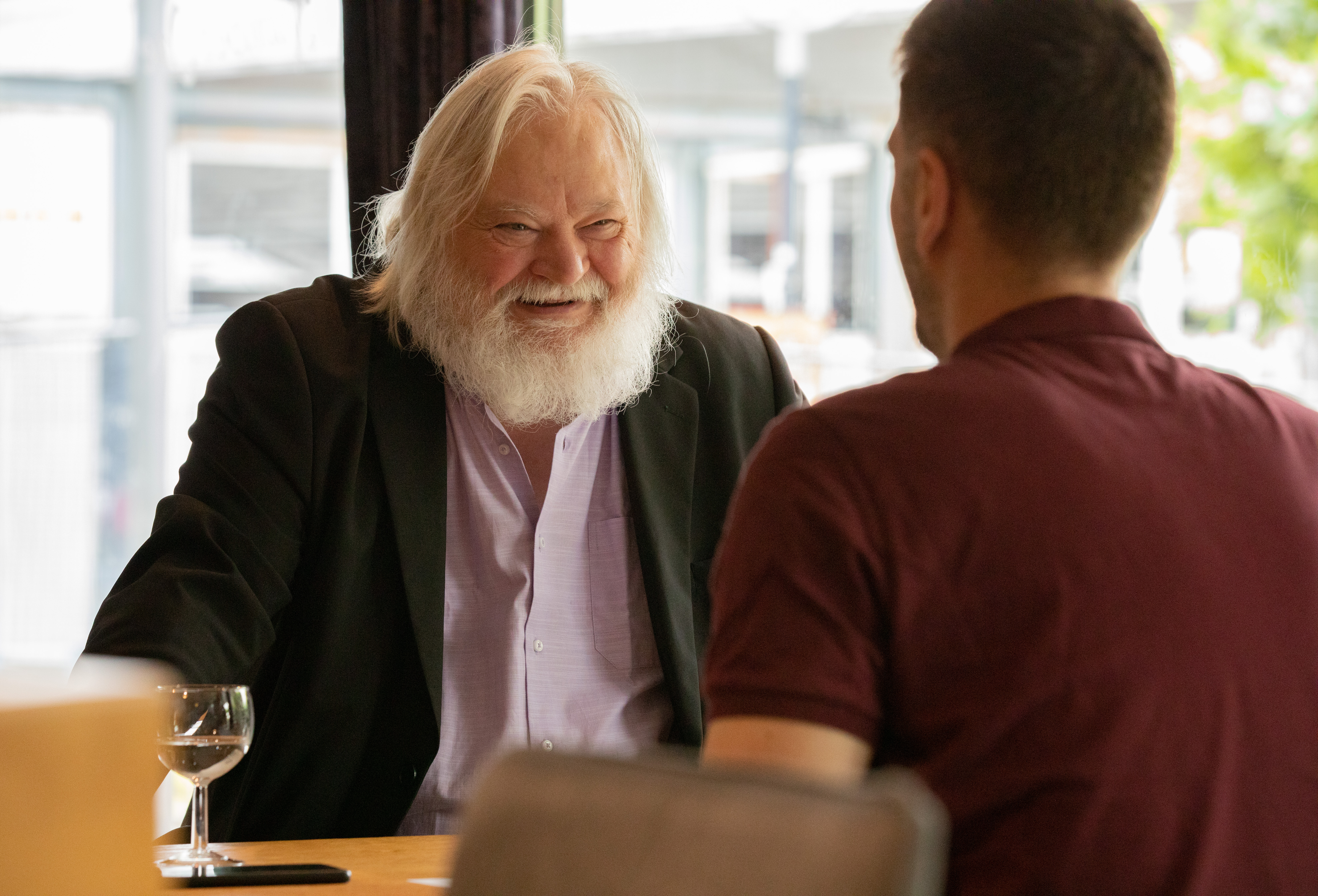Within the 50th International Dortmund Chess Days, press officer Patrick Zelbel conducted an extensive interview with Artur Yusupov about his tasks in Dortmund, the highlights of his career, chess for children and the opportunities in German chess. An excerpt appeared in the sports section of the daily newspapers of Lensing Media, Zeitungsverlag Rubens and Medienhaus Bauer on 6 July.
Artur Yusupov has been associated with the International Dortmund Chess Days since the 1990s. Jussupow has been a chess grandmaster since 1980 and belonged to the absolute top of the world. Today he passes on his knowledge as a chess trainer and commentator.
What are you currently doing here in Dortmund?
I have the best job in the world here, because I am the chess commentator of the International Dortmund Chess Days together with Fiona. We commentate live for online audiences worldwide in English, primarily for a chess audience. And it's a pleasure for me to be here in Dortmund and just experience the 50th Chess Days and celebrate the anniversary together.
 About your chess career (photo 1997, by Christian Lünig): You reached the semi-finals 3 times in the candidate tournaments for the World Championship. When were you particularly close to the World Championship title?
About your chess career (photo 1997, by Christian Lünig): You reached the semi-finals 3 times in the candidate tournaments for the World Championship. When were you particularly close to the World Championship title?
In retrospect, I understand that I was never really close. I had the chances in a duel against Anatoly Karpov. With a little more luck I could have won that duel. But objectively I see that Karpov and Kasparov were simply better players at that time.
What made the two world champions Karpov and Kasparov special?
Above all, their understanding of chess. They were on a higher level than me or other grandmasters. They understood some things about the game that I might not have understood. It is then very difficult to compete with players who have such talent and work so hard. You need a bit of luck as well as the 100% you have to give.
Looking back, what was your greatest success in your playing career?
I had a few. Maybe the duel against Jan Timman in the quarter-finals of the World Cup. I played very well and had some really good moments. Just like I had a "great moment" in the duel against Wassily Ivanchuk. To be able to experience something like that, to really get into a flow against the best players in the world, is a fantastic feeling.
You won the Chess Olympiad several times with the Soviet Union. What is special about team chess?
Sometimes there are really great conditions in team chess, then you can call up even more than in individual chess. That motivates you even more to play for the team. With the Soviet team, however, that was hardly the case. We were simply the best individual players and that was enough as a team.
But today I remember the atmosphere in the German team in Istanbul in 1998 when I switched to Germany. I rate the second place higher than the five victories with the Soviet team. We had great unity in the team during the tournament and second place was a great success.
 Do you remember the first time you played at the International Dortmund Chess Days?
Do you remember the first time you played at the International Dortmund Chess Days?
That was in 1994. At that time I didn't realise what would become of this tournament. For me it was simply a very strong tournament. But now that the anniversary is being celebrated here, I realise what a great achievement it is for the organisers. For me, it's very nice memories of the strong tournaments, the city and the atmosphere. I met top players and had great games. But I have to say I enjoy working as a chess commentator even more now. I can see now how much the team works for the event. That is the strongest impression at the moment, some volunteers, I am very happy to be part of the team.
You run a chess academy in southern Germany. How can one imagine that?
My wife and I have founded a non-profit company and teach chess to children. From my position, I try to share my experience with children, but also with other coaches. In my own career I learned a lot from other chess teachers, like Mark Dvorezki or Mikhail Botvinnik. They made an effort to work with me as a young player. That was special for me and I now want to give something back and enable young people to share in the knowledge that I got.
 Who are your best-known students?
Who are your best-known students?
Things are going well in our chess academy, many children have made it into the German squads and youth national teams. I trained Leonardo Costa (already a Bundesliga regular for some time at 15), I also worked with Hussain Besou (photo, 11-year-old top German talent), there were many of them.
Which German player do you think will make it to the top of the world?
One of them has almost made it, Vincent Keymer. I was allowed to accompany him a little bit on his way and of course he is a super talent. I hope he continues to develop as well as he has so far.
Why would you recommend children to start playing chess?
It's a big topic, there are many reasons. But especially in these current times, chess has become even more important. These times are too fast and hectic. Children are often asked to react quickly, it's a hectic world, unfortunately also at school. Chess is in a sense a counter-position. We can help children to go a little deeper into a subject and to look at something in detail. But you also learn a lot of skills that are important in any job: How to utilise information, improve your memory, recall memories and use information in a creative way. We know from studies that this plays a role especially at a young age. Chess teaches skills through play.
What would you recommend to people who find chess interesting but don't play it themselves yet?
It's never too late to start. I gave many courses for adult beginners in Switzerland a few years ago. I still remember the enthusiasm of the visitors. There are now also many courses and programmes for beginners online. But I would also recommend looking for a club in your area and just drop in. Or just visit a tournament, like the Dortmund Chess Days.
What makes chess still so exciting for you after all these years?
You still learn something new every time. The "No Castling Chess" from Dortmund is the best example. We have seen games at the very highest level and professionals discover ideas and problems that they themselves have never seen before. And the solutions of the players are exciting and I still learn a lot.
What would you wish for chess in Germany?
We have to somehow move together in one direction. That is the most important thing. The chess federations have had too many structural problems lately, especially internal ones. We have to make chess more popular and bring chess to where the sport deserves to be. The German Chess Federation, the regional federations, the chess clubs have to work together. Clubs have problems, like online chess as competition. But this is also an opportunity to attract new players. Fortunately, we currently have some promising players.



